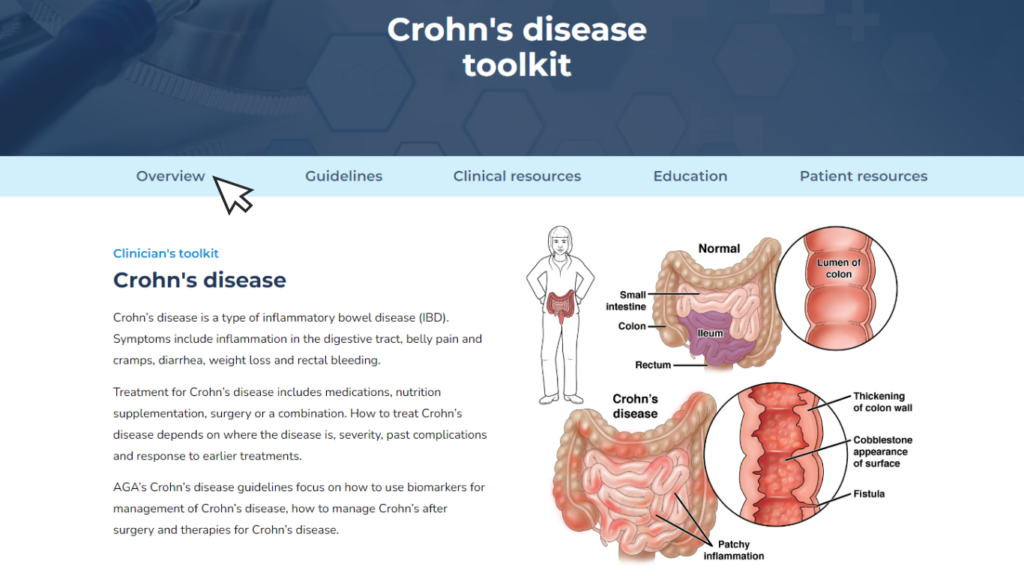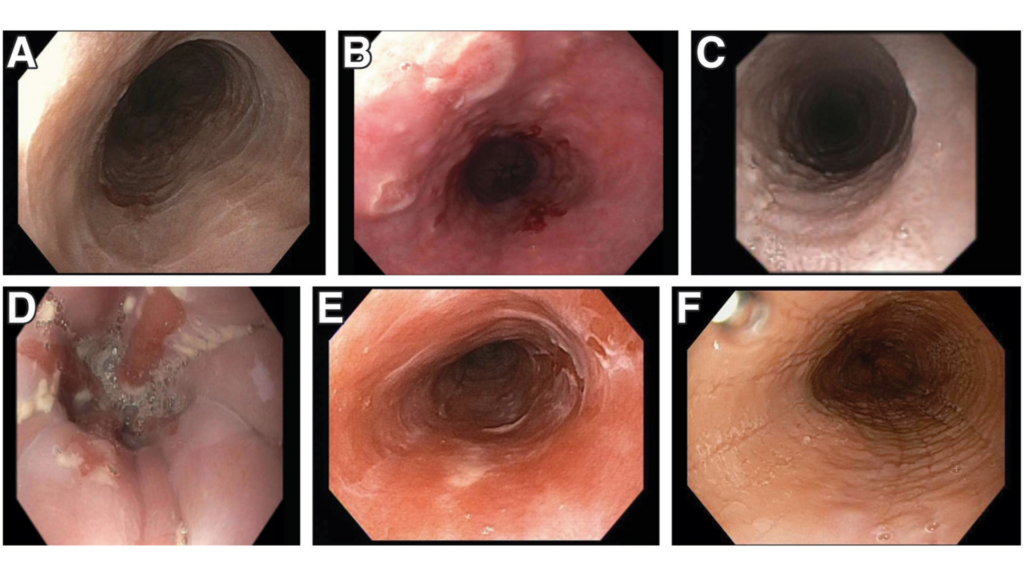Identifying gastrointestinal symptoms in hypermobile Ehlers-Danlos syndrome

Treatment approach should follow general recommendations for managing disorders of gut-brain interaction and GI motility disorders.
Screening and surveillance in patients at high risk for gastric cancer

The latest advice on evaluating and preventing gastric cancer in high-risk patients, including guidance on primary and secondary preventions.
Nonampullary duodenal lesions

Practical guidance on evaluating and risk-stratifying patients with nonampullary duodenal polyps and the best approaches for resection, surveillance, and managing complications.
Endoscopic enteral access methods

Guidance to help you choose the tube, access point, delivery site, and feeding method for patients unable to maintain adequate oral intake.
Obesity toolkit

Find the latest obesity clinical guidelines, on-demand clinician education, patient resources and more.
Esophageal dysfunction due to disordered immunity and infection

Best practices for diagnostic considerations of immune-mediated disorders to consider when treating patients with dysphagia, heartburn, and odynophagia.
Eosinophilic esophagitis (EoE) toolkit
Find the latest on EoE, including on-demand clinician education, patient resources and more.
Post–ESD surveillance for early GI neoplasia

This clinical practice update provides a clinical care framework to standardize post-endoscopic submucosal dissection (ESD) surveillance strategies.
Endoscopic therapies for non-variceal upper gastrointestinal bleeding
Read the latest clinical practice update on managing the treatment of patients with non-variceal upper gastrointestinal bleeding (NVUGIB).
Integrating potassium-competitive acid blockers into clinical practice

Find out when to use potassium-competitive acid blockers (P-CABs) in the clinical management of foregut disorders, specifically GERD, H. pylori infection and peptic ulcer disease.










